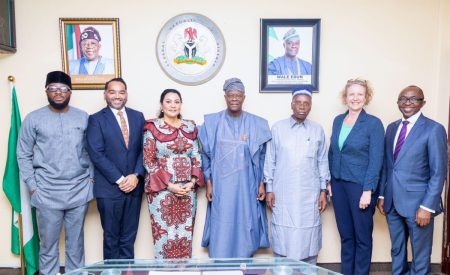 11 May 2013, Sweetcrude, WASHINGTON, DC – Global Financial Integrity (GFI) lauded former UN Secretary-General Kofi Annan and the Africa Progress Panel (APP), which he chairs, for highlighting the devastating impact that illicit financial outflows have on economic development and poverty alleviation across the continent in the 2013 Africa Progress Report published today.
11 May 2013, Sweetcrude, WASHINGTON, DC – Global Financial Integrity (GFI) lauded former UN Secretary-General Kofi Annan and the Africa Progress Panel (APP), which he chairs, for highlighting the devastating impact that illicit financial outflows have on economic development and poverty alleviation across the continent in the 2013 Africa Progress Report published today.
The APP report cites GFI’s research on illicit financial flows and calls upon the G8 to require full, public disclosure of the beneficial ownership information of all corporate entities within the next year.
“Illicit financial flows—facilitated by tax haven secrecy and anonymous shell companies—are the most damaging economic problem facing the African continent,” said GFI President Raymond Baker, a longtime authority on financial crime. “GFI’s research shows that illicit financial outflows cost Sub-Saharan Africa $385 billion between 2001-2010. That’s nearly $400 billion that could have been used to invest in healthcare, education, and infrastructure—that could have been used to pull people out of poverty and save lives. Mr. Annan and the Africa Progress Panel have done a major service to the people of Africa in highlighting this menace.”
Utilizing Africa’s immense resources to lift millions of people out of poverty “will require strengthened governance backed by international cooperation to stem the hemorrhage of revenues associated with tax evasion, secret deals and illicit financial transfers,” Mr. Annan wrote in an op-ed for the International Herald Tribune on Friday.
“It is time to draw back the veil of secrecy behind which too many companies operate,” continued Mr. Annan. “Every tax jurisdiction should be required to publicly disclose the full beneficial ownership structure of registered companies. Switzerland, Britain and the United States — all major conduits for offshore finance — should signal intent to clamp down on illicit financial flows. And the G-8 and the G-20 should work together to expand the scope and reach of the Dodd-Frank” extractives transparency legislation.
Mr. Annan continues to write: “It is also critical that the G-8 helps to empower African governments. The region’s revenue authorities are hopelessly ill-equipped to tackle problems such as transfer pricing or to counter illicit transfers. That is why the Africa Progress Panel has called on the G-8 to provide the technical, financial and administrative support to build capacity.”
Building on British Momentum against Phantom Firms
Late last month, UK Prime Minister David Cameron called for the G8 to endorse public registries of beneficial ownership information—effectively banning anonymous shell companies—when world leaders meet in Northern Ireland this summer. Kofi Annan’s endorsement raises the pressure on the United States, Canada, Japan, Russia and other G8 members to follow suit with full public registries.
“Anonymous shell companies are the most-widely used method for laundering the proceeds of crime, corruption, and tax evasion,” said Mr. Baker of GFI. “These phantom firms facilitate sex slavery, terrorism, and tax evasion. Central public registries of meaningful corporate ownership information are essential to curtailing these pernicious crimes. We’re heartened to note Mr. Annan’s endorsement of this position. It’s now time for the United States, Canada, Russia and Japan to jump on the bandwagon.”
Upcoming AfDB and GFI Study
The APP report compares the amount of money flowing illicitly out of Africa, citing GFI’s research, to the amount of foreign aid and foreign direct investment flowing into the continent—noting that the illicit outflows exceed foreign aid and FDI. Global Financial Integrity (GFI) and the African Development Bank (AfDB) explore this concept of net resource transfers from Africa more fully in a report scheduled for publication May 29, 2013 alongside the 48th annual AfDB meetings in Marrakech, Morocco. Titled “Illicit Financial Flows and the Problem of Net Resource Transfers from Africa: 1980-2009,”the findings of the report will be discussed by GFI and AfDB experts on a panel at the annual meetings in Marrakech Wednesday, May 29th.



